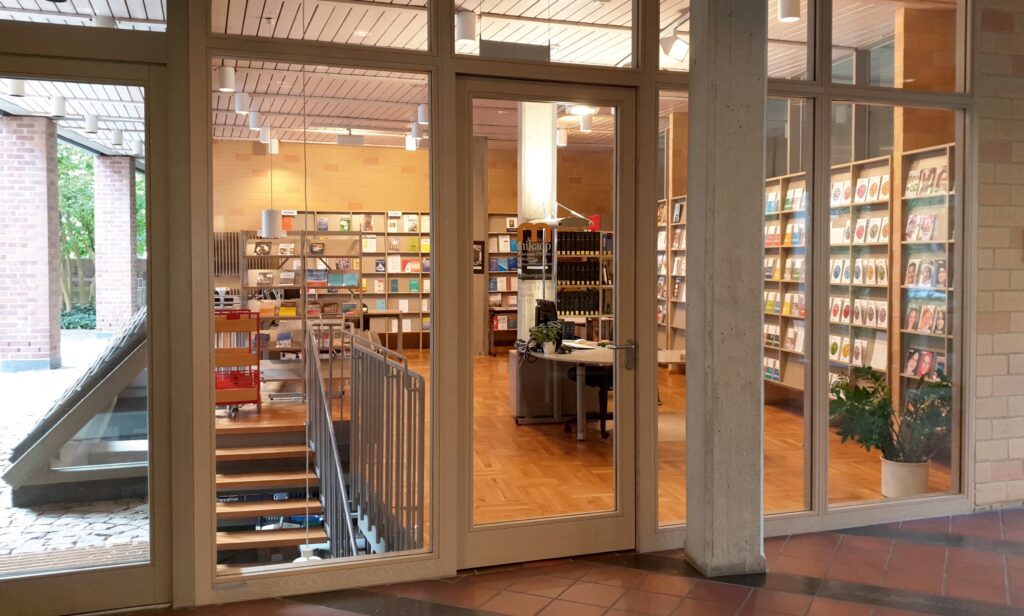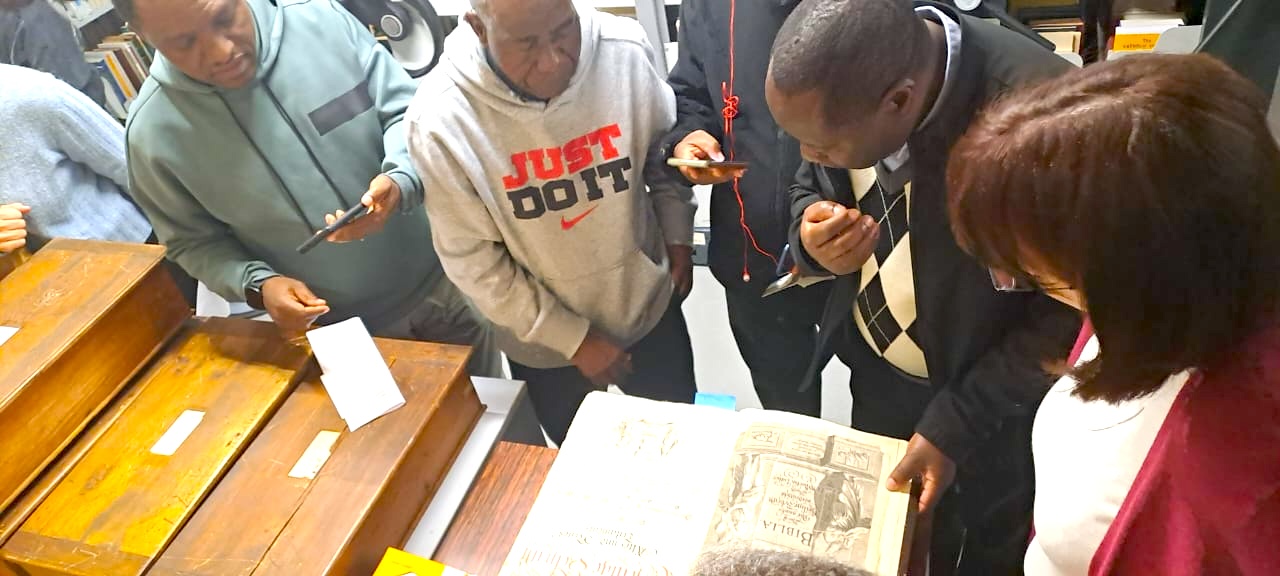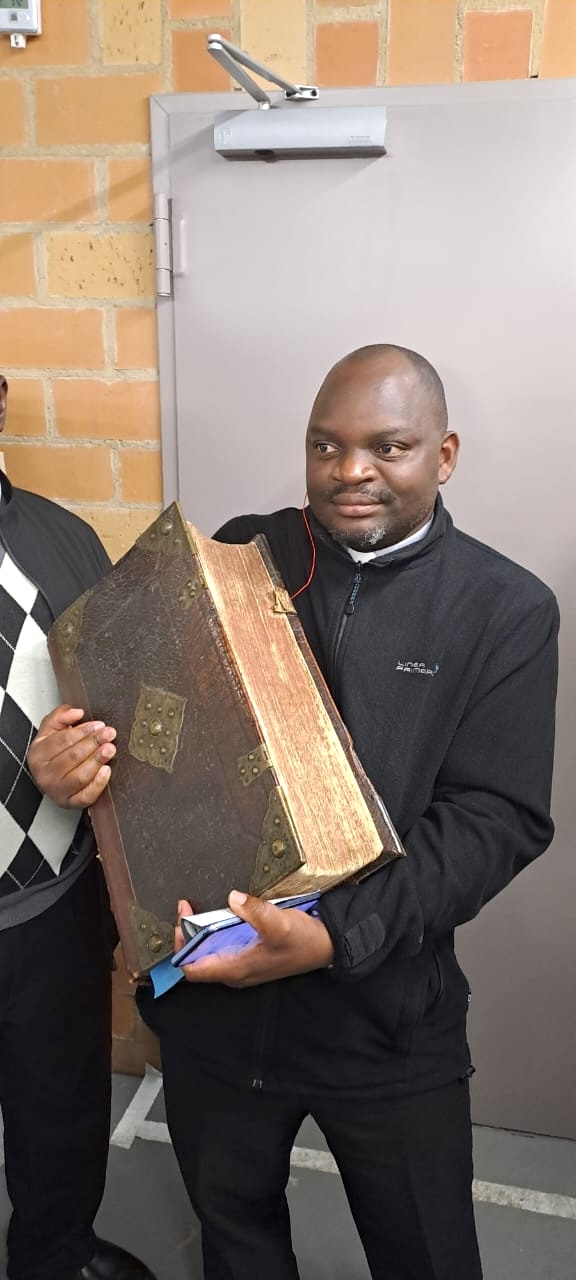MIKADO: A Treasure for Theologians in Africa and Beyond At Missio Aachen

The Missio Library
Andrew Kaufa smm
Apart from the funding pastoral and social projects in Africa, Asia and Oceania, one long standing service which Missio Aachen offers to the Church in Africa is open access to the ‘Curriculum Theologiae’ of the missionary library and Catholic Documentation Centre library, simply referred to as Mikado Project.
Mikado is an online platform on Missio’s website missio – Internationales Katholisches Missionswerk e.V. where the international theological academia familiarize themselves with theological reflections from a wide variety of texts and enter an exchange with one another. Built in 1917 by Dr Franz Baeumker, the Mikado library is one of German’s largest and specialized missionary libraries for the world Church, whose collection has grown to over 190,000 volumes, different languages including English, French, German and Spanish.
Missio Library, a Rare Collection
According to Matina Curic and Michael Drummen at Missio Aachen Library and Archives, Mikado is the library’s online project which can benefit more the Church in Africa, Asia and Oceania.
“The use of ‘Curriculum Theologiae’ as a publication platform for texts by African Christians and theologians would therefore benefit both sides – the MICADO library and the theologically curious from Africa, Europe and worldwide,” says Matina and Michael.
“The Mikado library receives publications and journals from the project partners and friendly institutions in Africa, Asia and Oceania that are not otherwise available in Germany and Europe. For example, the bibliography on African Theology (Production Theologique Chretienne Africaine, 1956-2010) By Sister Jose Ngalula Tshianda which was supported by the MWI, contains several hundred references to Mikado,” they added.
During a visit to the library and archives on Monday, June 17, 2024, the AMECEA team which is currently undergoing a training on the Missio Aachen project funding processes, one that is fascinating is the variety of contextual theologies in Africa, Asia, Oceania and Latin America.

Digitization of Library Resources
Digitization of libraries and archives is one of the biggest topics today. As such, it cannot be a surprise that that many Church institutions in Africa, including Catholic universities, National Secretariats of Catholic Episcopal Conferences, dioceses and parishes are faced with the challenge to digitize their data. With the rapid changes sin digital technologies, nobody knows for sure if the digitized materials of today will be readable in the next hundred years. However, according to Matina and Michael, what matters is to strive to be abreast.
“The library team at Missio Aachen has always tried to stay abreast with new developments in library and archives management,” they say.
“We integrated computer cataloguing software in

our work in 1985 and in 2,000 gone live with our online catalogue and website. On the 50th anniversary of the MWI in 2021, in a collaboration between the Missio Library in Aachen and the Index Theologicus Project of the University in Tubingen, our open access library database Curriculum Theologiae has been upgraded to a new system which better meets the standards of modern scientific information flow,” says the Missio library team.
“The goal of the server is to be a forum for development of theological and p
tes in Africa and Asia, and make their theologies more visible to the international scholarly community,” continues the library team.
Living Up to the Challenge
Learning from their experience, how should the Church in Africa respond to the challenge of digitizing data? According to the Missio library team experience, the biggest challenges has been the copyright and intellectual property rights, funding and ensuring log-term preservation of the material or data. Obviously, these would be the fears also for the Catholic institutions in Africa.
However, learning from Mikado, there is a solution.
“To our colleagues in Africa who wish to digitize their collections, we would recommend to carefully plan these projects and connect and collaborate with other libraries and library associations in order to ensure proper training and longevity of the digitized materials,” the team’s free advice.


